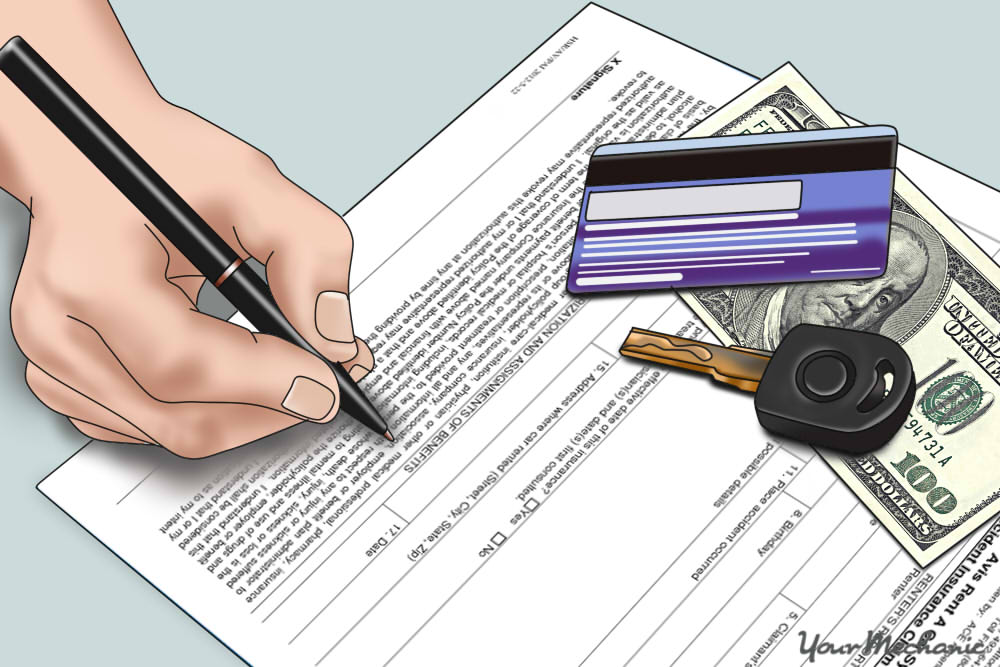

Short term car insurance, also known as temporary car insurance, provides the same amount of coverage as regular car insurance for a shorter period of time. Normal auto insurance policies last 6-months to one year. Temporary auto insurance can be purchased for as little as one day to two months, depending on the provider.
In the United States, driving a vehicle without car insurance is illegal. If caught, you are subject to hefty fines, points and potential suspension on your driver’s license, and higher rates on later insurance policies because of the strikes against your driving record. Additionally, should you get into an accident while without insurance, you could end up paying medical and property damage expenses for a long time.
When to Purchase Short Term Car Insurance:
People take out temporary car insurance policies for a variety of reasons to refrain from driving with a lapse in insurance coverage. Here are 12 occasions when one would buy temporary insurance:
1. In between car insurance policies. If you’re switching providers at a time that doesn’t automatically keep you covered, temporary insurance can fill the gap in protection.
2. Concerned about liability limits. If you’re worried the minimum insurance may not cover the already-insured vehicle in a liability claim, you may take out short-term insurance as supplemental coverage.
3. Renting a car while out of town. You can purchase the rental car company’s insurance for the duration of using the car or choose another provider.
4. Avoiding rental car insurance prices. If you plan to drive a rental car on and off for multiple occasions or for a few months, temporary coverage may be cheaper than rental company fees.
5. Borrowing a friend or family member’s car. You may be using their car while your car is getting fixed, or you’re briefly in between vehicles. If you’re a houseguest and they’re loaning you their vehicle, it would be wise to take out some kind of insurance. Do not assume somebody else’s policy covers the car you’re borrowing.
6. Short-term ownership of the vehicle. You still want insurance on your car, however short the period of ownership is. This could apply to an extended vacation or work-related trip, as well as a car you purchase only to resell.
7. Your car will be in storage. To protect your car against damages that may happen while in a storage facility, it may be smart to take out a short-term insurance policy.
8. You’re selling the car soon. Your old insurance policy may be up, and you’re looking to sell the car without losing coverage in the interim. You may also want it protected against test drivers.
9. Instant coverage while driving a new car off the lot. You don’t want to take any chances — especially with a new vehicle that may have higher maintenance costs.
10. Returning home from college for a break. While visiting, you may only need a car for a few weeks, but you want to make sure you’re covered.
11. Moving-van rental coverage. Make sure your regular auto insurance agency covers rented moving vans — otherwise you should look into temporary insurance.
12. Rideshare driver of a company car. If you do not own the car you use for ridesharing, you still want it covered under an insurance policy.
3 Main Types of Temporary Car Insurance:
Short-term car insurance still provides the same coverage as long-term insurance policies that usually automatically renew every 6-months to a year. It can be added to existing policies or take the place of standard coverage. Temporary insurance comes in many forms, but the main 3 are:
1. Non-Owners insurance. Non-owners insurance protects those who don’t own their own car but occasionally find themselves driving other cars. Non-owners policies will provide liability for medical bills should an at-fault accident occur, as well as additional protection.
2. Gap insurance. Gap stands for guaranteed asset protection, and it protects you when your regular insurance only covers the amount your car is worth. Car value decreases significantly the older it becomes, and serious repairs can exceed the amount of the car’s new worth. Should your car be wrecked in an accident, gap insurance will take care of excess costs, and should be considered if you’ve put down less than 20% toward your car and financed it for 5 or more years.
3. Rental car insurance. Your regular insurance may only have limited coverage of a rental car, or you don’t own a car and therefore don’t have auto insurance. Rental car companies will offer insurance or additional coverage plans such as liability protection, loss-damage waiver, personal accident insurance, and personal effects. Rental agency prices can be high, so be sure to seek out third-party temporary insurance policies too.
Price and Qualifications for Short-Term Car Insurance
Similar to regular insurance policies, the insurance company will take your location and vehicle make and model into account before quoting you a price. Companies will also consider any notable marks on your driving record. Short-term insurance is often more expensive than long-term coverage, but it is only to cover needs for a limited amount of time.
Before setting your sights on an affordable price, make sure you meet these requirements to purchase temporary insurance:
- You’re over 21 years old.
- Your driver’s license has been valid for at least 1 year.
- You have no more than 6 penalty points in the past 3 years.
- You have had no more than 1 at-fault accident in the past 3 years.



